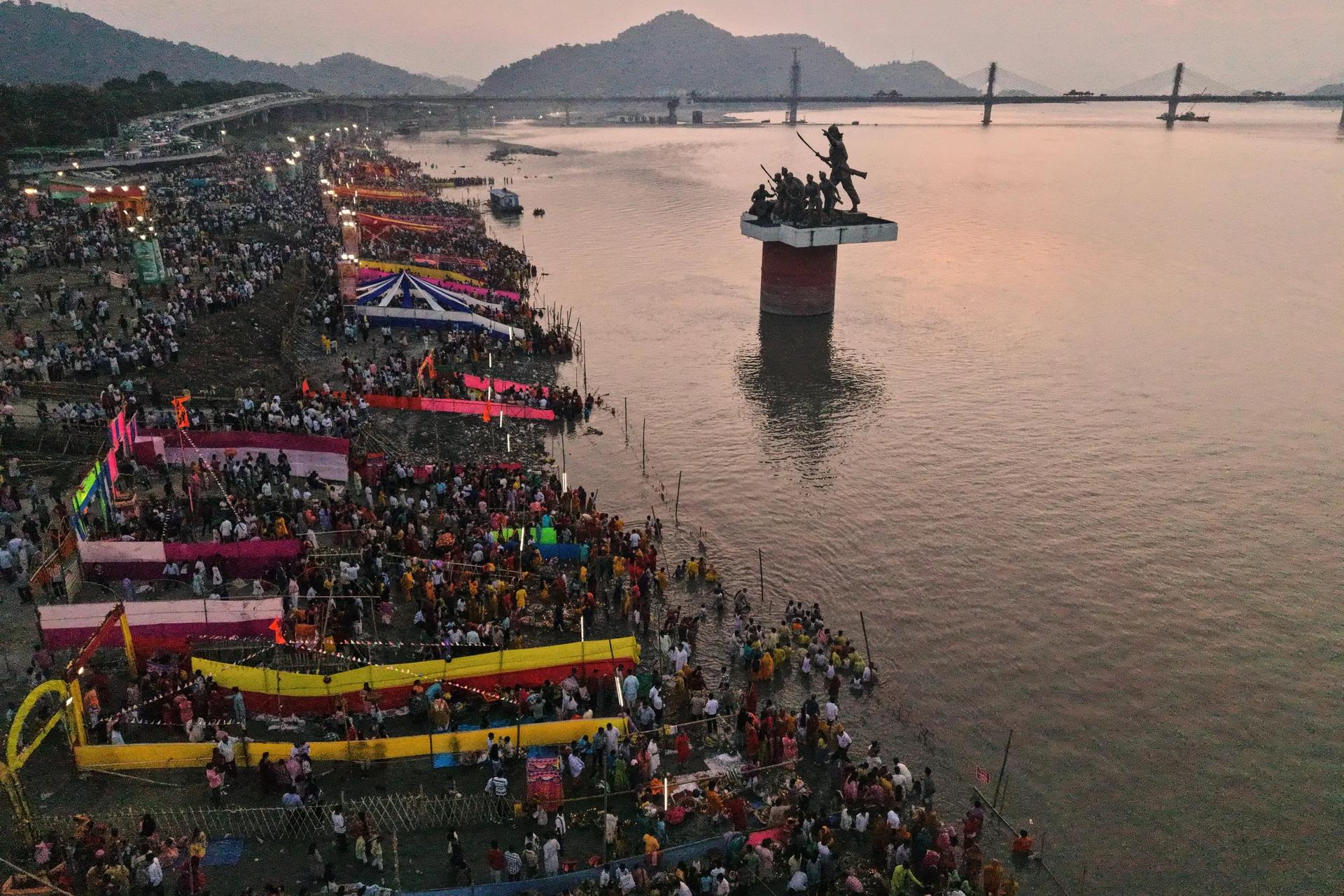MUMBAI, India – The Supreme Court of India is raising questions over the anti-conversion law in Uttar Pradesh state, sayings India is a secular country.
The court is dealing with a batch of petitions concerning six criminal cases registered by Uttar Pradesh police under various provisions of Indian Penal Code (IPC) and the 2021 anti-conversion law, reported Bar and Bench.
The Supreme Court on Oct. 17 raised concerns over key provisions of the Uttar Pradesh Prohibition of Unlawful Conversion of Religion Act 2021, enacted by the Yogi Adityanath government, reportedly describing parts of the law as “onerous” and potentially intrusive.
The court highlighted the “conspicuous” involvement of government authorities in the religious conversion process.
The court noted that it was not examining the constitutional validity of the UP Conversion Act in this case, but observed that the Act’s pre- and post-conversion declaration requirements “seem to introduce a very onerous procedure to be followed by an individual seeking to adopt a faith other than the one he professes,” LiveLaw reported.
According to the report, the court highlighted the visible involvement of State authorities in the conversion process, noting that the District Magistrate is legally obliged to direct a police enquiry in every case of intended religious conversion.
It also flagged concerns over the law’s requirement to make public the personal details of converts, which “may require a deeper examination to ascertain if such a requirement fits well with the privacy regime pervading the constitution.”
According to Hindustan Times, the Court also noted that the Act mandates a declaration before the District Magistrate prior to conversion, giving authorities significant visibility and control over personal decisions.
Fundamental rights and privacy concerns
The court underscored that the people of India enjoy freedom of thought, belief, and worship, calling it “an embodiment and expression of the secular nature of the country.” It also questioned whether publishing the personal details of those who convert aligns with the constitutional right to privacy.
During the hearing, the bench orally remarked that parts of the 2021 Act “seem to be violating fundamental rights guaranteed under Part III of the Constitution, particularly Article 25.”
The justices made these observations while quashing accusations against the Vice Chancellor and other officials of Sam Higginbottom University of Agriculture Technology and Science (SHUATS) in Prayagraj, which had accused them of allegedly forcing mass religious conversions to Christianity.
“The recent judgment of the Supreme Court of India on October 17 striking down the misuse of the U.P. Anti-Conversion Law is a moment of great significance for our nation and its democratic ethos,” said Bishop Ignatius D’souza of Bareilly in Uttar Pradesh.
“The Court has reaffirmed a truth deeply rooted in the Indian Constitution and in every moral conscience — that faith is a matter of personal choice, not public control,” he told Crux.
The bishop said by cancelling multiple official accusations that were filed by outsiders or politically motivated groups, “the Supreme Court has drawn a clear and necessary line between genuine protection of individual rights and the misuse of law to harass or intimidate communities.”
Uttar Pradesh, like the national government, is run by the Bharatiya Janata Party (BJP), with strong links to the Rashtriya Swayamsevak Sangh (RSS), a militant Hindu nationalist organization.
Hindu nationalists often accuse Christians of using force and surreptitious tactics in pursuing conversions, often storming into villages and leading “reconversion” ceremonies in which Christians are compelled to perform Hindu rituals.
These pressures on Christians, which also affect Muslims and other religious minorities, are part of what observers describe as a broad program for the “saffronization” of India under Prime Minister Narendra Modi, meaning an attempt to impose Hindu values and identity while squeezing out rival faiths.
Uttar Pradesh is the most populous state in India, with nearly 200 million people. However, only about 350,000 Christians live in the state, a miniscule 0.18 percent of the population.
“The Court rightly held that only the victim or their immediate family has the right to lodge a complaint in cases of alleged forced conversion. This ruling protects the sacred sphere of personal faith decisions from unwarranted interference,” D’souza said.
“This is not merely a legal victory — it is a moral and constitutional affirmation. Article 25 of our Constitution guarantees every individual the freedom to profess, practice, and propagate religion. This freedom, however, is meaningful only when exercised without fear. The Supreme Court’s ruling restores this spirit by declaring that no political organization, no outsider, and no coercive force can dictate or question the sincerity of one’s personal belief,” he told Crux.
“In an age when religion is sometimes weaponized to divide people, this judgment stands as a beacon of justice, reason, and harmony. It reminds us that the essence of India lies in its pluralism — in the peaceful coexistence of faiths, cultures, and consciences. True conversion, as the Court wisely underscored, can only be a matter of free will and inner conviction, not coercion or deceit,” the bishop said.
“This decision is therefore not just about law; it is about the dignity of the human person, the sanctity of conscience, and the strength of democracy itself. It invites us all — citizens, leaders, and faith communities — to respect the sacred freedom with which every person seeks truth and meaning in life,” D’souza added.
“Let us welcome this judgment as a step toward building an India where faith is respected, diversity is celebrated, and fear gives way to freedom,” he said.















